Kuss has 'no complaints' over last-minute programme-switch to Giro from California
American gets late call-up after Jumbo-Visma lose Gesink in crash
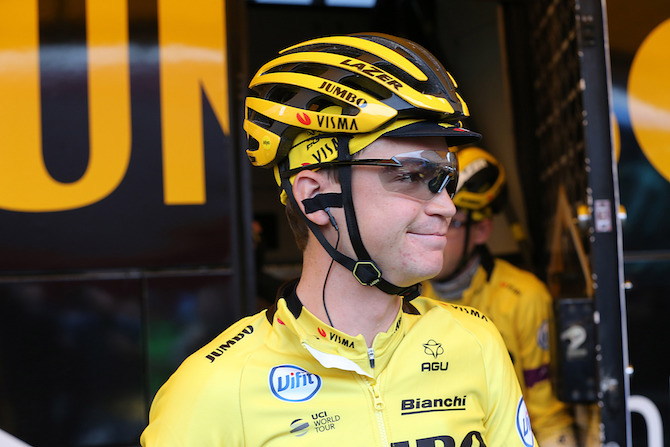
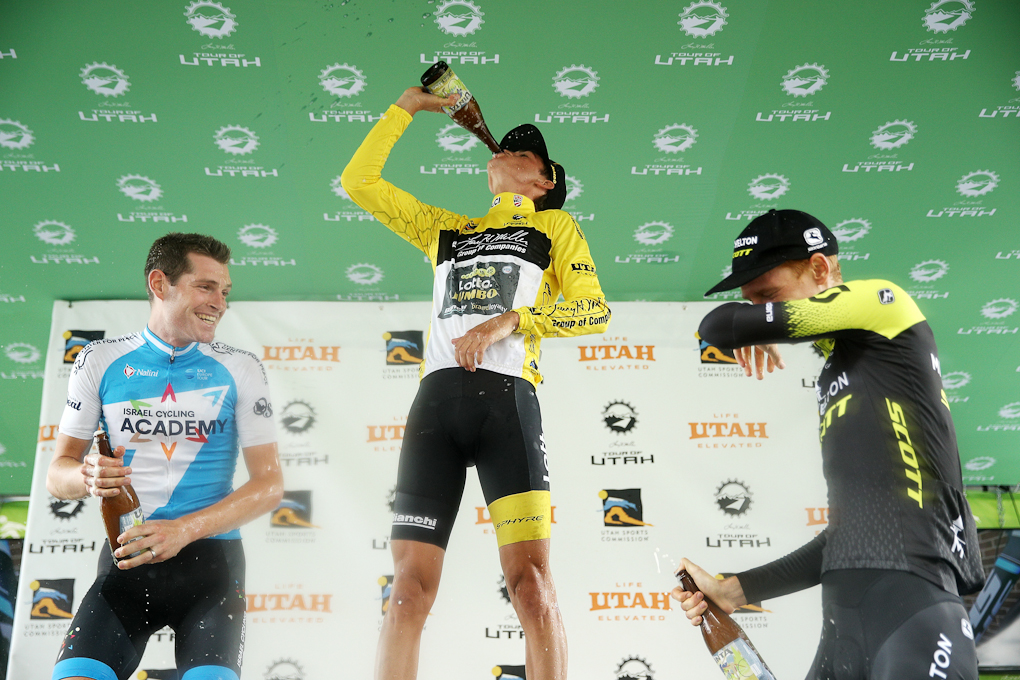
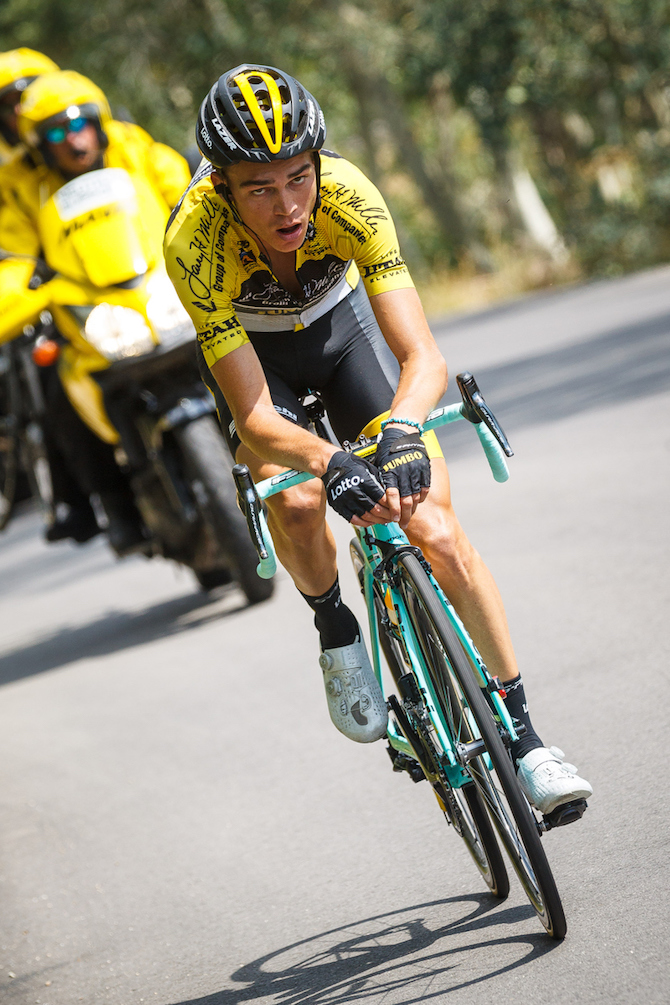
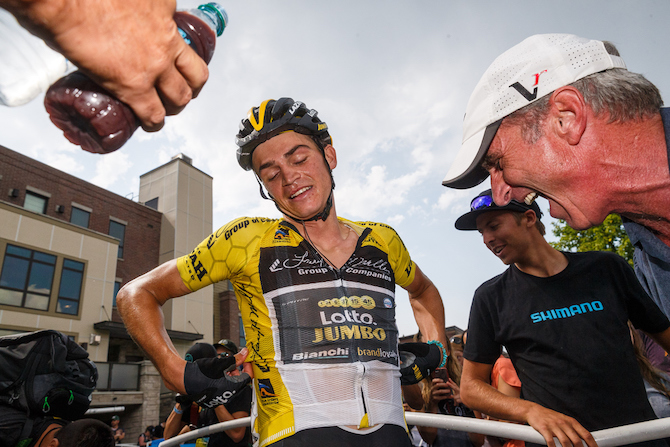
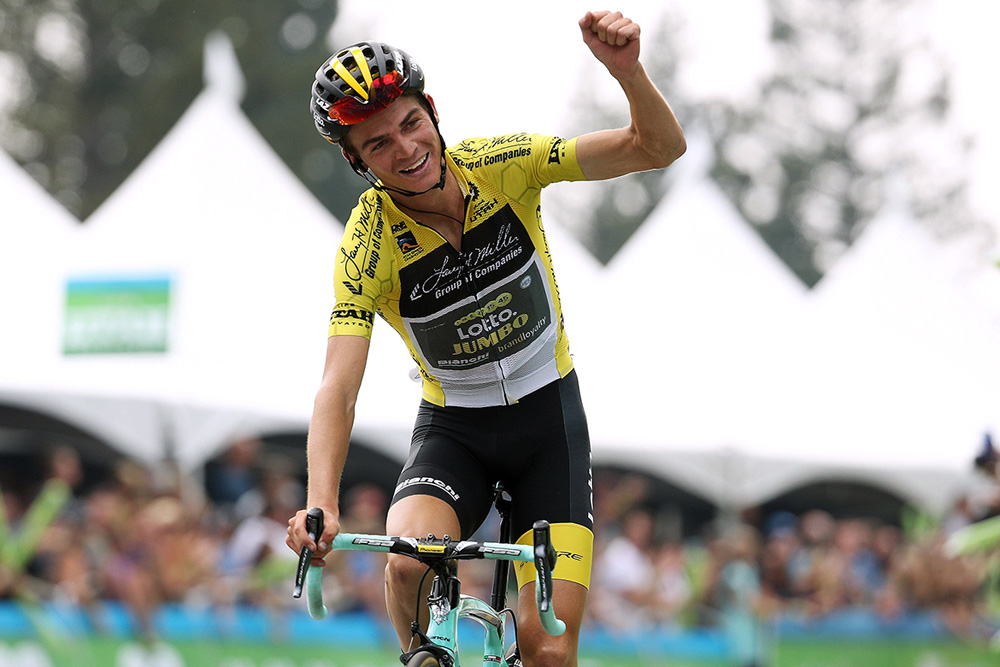
As long ago as February, Sepp Kuss (Jumbo-Visma) had described the Tour of California as one of his big objectives for the first half of the season. But a little over two weeks ago, all that changed in a single phone call.
The day after teammate Robert Gesink crashed and was badly injured at Liège-Bastogne-Liège, the American climber was called up by Jumbo-Visma as a substitute for the Dutchman at the Giro d'Italia.
Kuss is now deep into the first week of racing the Giro, where he is fully focused on helping team leader – and current race leader – Primoz Roglic, which Kuss tells Cyclingnews is "a big honour".
And now, he says, his main goal will be honing his form to be ready for the Giro's third week, where the race will very likely be won and lost.
"Honestly, I see racing the Giro as a bigger opportunity. But of course being an American and being a US race, the Tour of California is something pretty unique, especially as there's no time trial at this year's race, so I could have had a good chance there," Kuss told Cyclingnews earlier this week.
"But I'm super-excited, and it's a big honour to do the Giro this year, especially with the team and leader we have. So it's all a bit bitter-sweet, but at least I got to train for three weeks in Colorado. That's the best thing about US races: that you get that time before and after them back in America.
"So I got that out of the trip, and I'm in a good mental and physical place going into the Giro. So, yeah, no complaints."
Get The Leadout Newsletter
The latest race content, interviews, features, reviews and expert buying guides, direct to your inbox!
Earlier this year, Kuss was set to target California's overall classification alongside teammate George Bennett – who's currently lying 10th overall at the US race. But at the Giro d'Italia, Kuss can expect to be well out of the GC battle, with his goal purely to provide climbing support to Roglic.
The 24-year-old's experience of helping Steven Kruijswijk to fourth overall at last year's Vuelta a España – which came after Kuss's own impressive victory on home soil in the Tour of Utah – is a vital reference point when it comes to his first Giro d'Italia.
However, there are big differences as well.
"The main thing about this Giro is being good in the third week. At the Vuelta, I really used a lot of energy in the first half of the race, and in Utah as well," said Kuss.
"But I can't compare myself to how I was going before Utah, feelings-wise or numbers-wise, because it's a different point in the season, and you're not maintaining that kind of form all year.
"So maybe I'm not at that level yet, and we've changed things in training, too, based on how the beginning of the year went," he continued. "But the benefit of this race is that the really hard days are at the end. There's time to get into the rhythm of it all: not necessarily 'train' into the race, but I don't have to be stressed about not being at top form for the first stages."
Where he is already comfortable is with the dramatic switch of plans from riding the USA's premier stage race to racing on the other side of the world in Italy's top cycling event.
"I got the call the day after Liège, so right after Robert crashed. I was in Boulder, so I was already in an ideal situation as I'd got some altitude training done, and was going to leave for California early anyway, on the same day. So, training-wise, the build-up was more or less the same," said Kuss.
Having landed in Europe the Monday before the Giro, Kuss felt as though he'd had enough time to get over the jet lag, and said that he handles the time-change better flying west to east across the Atlantic than vice versa. Plus with Jumbo-Visma taking the race lead on the very first day with Roglic, the team's attracting a great deal of attention – all of which has a knock-on benefit for his teammates.
"This is a big opportunity," Kuss said. "Even if not all eyes are on us all the time, we're certainly big favourites, and that's going to boost everybody's motivation on the team."
Alasdair Fotheringham has been reporting on cycling since 1991. He has covered every Tour de France since 1992 bar one, as well as numerous other bike races of all shapes and sizes, ranging from the Olympic Games in 2008 to the now sadly defunct Subida a Urkiola hill climb in Spain. As well as working for Cyclingnews, he has also written for The Independent, The Guardian, ProCycling, The Express and Reuters.
